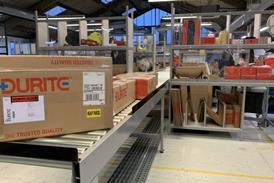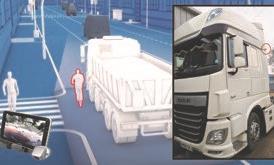Malcolm Wilson was appointed CEO of XPO Logistics Europe in September 2017 – well-deserved recognition for the work he did integrating the UK operation over the previous 12 years.
Wilson, who has 25 years’ experience in the logistics industry, was MD of Christian Salvesen when it was acquired by French 3PL Norbert Dentressangle in 2007 and successfully managed the integration of TDG (where he worked before Salvesen) when Dentressangle bought the company in 2011.
He subsequently became UK MD and then Europe MD for the supply chain business of Norbert Dentressangle before it was taken over by the top 10 global logistics provider XPO in 2015 for €3.5bn (£3bn) and was rewarded with the top job at XPO Logistics Europe two years later.
XPO Logistics Europe employs more than 50,000 people in 14 countries across Europe and is still headquartered in Lyon. The UK remains XPO’s second largest European market outside France with 22,000 employees including more than 5,000 drivers and 14,000 warehouse staff, annual revenue of €1.75bn (£1.5bn) and a fleet of 4,100 vehicles.
Cultural observations
So, having worked for British, French and now US 3PLs, what differences in cultures has Wilson observed?
Wilson says XPO is “culturally different, but not so different”.
“I think it’s a good blend of everything. The US organisation is much more centralised but it’s incredibly fast and agile. It’s quite a flat organisation and it’s easy to have contact with the top management," he says. "We don’t have bureaucratic procedures so we’re able to do things quickly. In fact, that’s probably one of the hallmarks of what makes the company so successful today. Last year, revenue growth was something like 12% year on year which is the result of satisfied customers. We’re doing well – but always look to do better."
Despite its size – globally XPO employs more than 100,000 people across 32 countries and turns over $17bn a year – few people in Europe had heard the name when it made its surprise swoop on the family-owned Dentressangle.
“In making that acquisition XPO was able to secure a sizable Europe-wide footprint. UK is the third market for XPO today after North America and France, with little difference now between French and UK revenues,” says Wilson.
Wilson has a deserved reputation for managing mergers of different cultures and he says the integration of Dentressangle and XPO integration went “incredibly smoothly”.
“Honestly, the integration took place over the first three to six months,” he says. “That was mainly changing our processes and systems. The lion’s share of the people remained because they saw the huge benefits of being part of a truly global enterprise with a lot of reach and an ability to satisfy its customers everywhere. It really went very smoothly.”
In the year to 31 December 2018, XPO reported revenue of $17.3bn (£13.3bn), a 12.3% increase on 2017, while the adjusted 2018 EBITDA increased 13.9% to $1.56bn.
One culture
Although Wilson bridles at the comparison, XPO wants to be like McDonald’s in that customers know exactly what to expect no matter what continent they are on and their expectations are always met.
“We are a one-culture business,” he says. “One of the things the customers like about XPO is they can enjoy the same kind of experience working with our supply chain business on the US west coast as they get in Spain or Poland.
“That comes because the business has done a good job of maximising communication at senior levels and making sure that permeates through the business. So, we have lots of different tools that allow us to make sure that how we do things in Europe is the same as how we do things in the US.
“It’s not a case of ‘everything in the US is best, so copy this,’ it’s truly a culture where we take the best of what the business does and not being precious about whether that is in the US or Europe. We take the best process and try to make that global.”
Drive and Connect
Two best of breed systems that XPO has introduced into Europe are XPO Drive and XPO Connect. XPO Drive is an app, designed for carriers, supporting real-time visibility across transportation modes and integrating carrier operations with daily productivity tools in one technology. Connect is a self-learning tool that allows XPO to match transport demand and capacity that runs with XPO’s Freight Optimizer software and is used for all the company’s brokerage business.
“In Europe, brokerage wasn’t a particularly well-regarded service,” says Wilson. “Today it is because high levels of control over quality means it’s a valuable tool in our toolbox.
“Of course, we’re still one of the largest operators of our own vehicles and drivers throughout Europe and the UK in particular. Nevertheless, our brokerage business is growing rapidly and XPO Connect is the glue that helps everything work in a very efficient way.
“Drive and Connect really are at the forefront of online technology for road transport. XPO is investing $550m (£430m) in 2019 on IT and technology. Realistically, we could never have developed those systems in Europe under our own steam. We leapt forward because they were already at an advanced stage in our US business.
“It’s a good example of where we’ve used the best technology and we are trying to use the same technology no matter where we were. We can say the same in our supply chain business where we’re rolling out our latest software for warehouse management.”
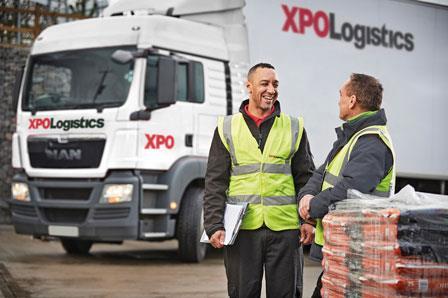
Best practice exchange
But it has not been a one-way street, and the staff development schemes set up in Europe have been exported to the US parent. “Our XPO graduate and apprenticeship programmes are being replicated across all our businesses, and its origin is Europe,” says Wilson. “It is a true exchange of best practice.”
As a global logistics firm, XPO is able to offer multinational manufacturers and retailers the full range of services in most of the major markets, and in the UK it has held several meetings with customers to discuss the implications of Brexit.
“While most of our customers just do business within the UK, a lot are international by their nature,” says Wilson. “Many customers in Spain work in France and the UK and it’s the same in Italy, the Netherlands and Sweden. Our experience across Europe is very strong. Sharing of best practice has allowed us to provide many customers with different services across a number of countries.
“It took six to 12 months for customers to realise that they had a perfect partner for working in the US. What we’ve seen over the last three years with XPO is many of our customers now work with us in the US. We are truly global partners with them.
“For 90% of our top 100 customers, we give more than one line of business across different countries. Being a global business has helped us accelerate our growth with big customers, particularly in the ecommerce field. Having gained trust in XPO in one market, it’s easy to lift that experience and put it somewhere else.”
In Europe, XPO’s Logistics business is worth $3.7bn (£2.8bn) a year, around 54% of total European revenues, and continues to grow faster than Transport because of the size of logistics contracts XPO is winning.
“Customers are much more confident to trust a huge contract to the big players,” says Wilson. “That’s the differentiating factor for XPO. The company has been able to behave as a true global business. That’s attracting larger customers to us and it’s one of the reasons we’re increasing much faster than the marketplace.
“Three years ago, when XPO came to Europe, we were 40,000 people. Today, we’re approaching 50,000 people. Every year of the last three years, we’ve recruited around 3,000 to 4,000 people. That’s a small acquisition in own right every year.”
Brexit uncertainties
Despite the uncertainties that Brexit has created, XPO and its customers are pressing ahead with some major logistics projects in the UK.
“One of the things XPO is good at is managing big automation projects,” says Wilson. “Those generally are 12 months in the planning. We have a large new fully-automated snacks facility with Nestlé in the Midlands that’s in construction now. It’s going to be a flagship site that will showcase all the latest technology that we can use in our warehousing.
“On our transport activity, our vehicle procurement is as strong as ever. We continue to be a big partner to all the big manufacturers such as Renault and Daimler. Our truck purchase programme, if anything, is reflecting the growth of the business.”
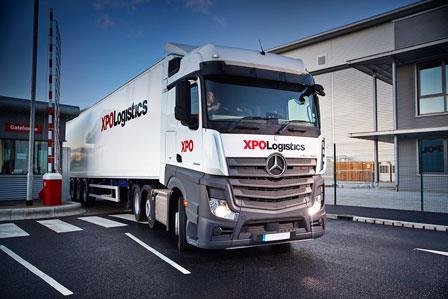
Shared services
Another change since the XPO acquisition has been an effort to simplify the old divisional split between Transport and Logistics.
“One of the things we’ve done in the past two years is pretty much eradicate those different siloed divisions and come together as OneXPO,” says Wilson. “We still have lines of business, so less than truckload and last mile are strong products that we offer, as well as value-added or niche services such as CoPack, equipment management and consolidation centres in contract logistics.
“But, more and more now, we manage those different services not by line of business but by contract. We still have a strong transport business unit and a strong supply chain business unit, but we have common shared support services such as HR, finance, IT, health and safety, procurement, etc.”
After several years where costs have risen faster than revenue for most 3PLs, Wilson says the pendulum is now swinging back to more sensible rates.
“Tariffs are hardening and getting stronger, and that’s just a common-sense function of the cost increases we have seen recently,” says Wilson. “In most territories, you’ve got driver shortages, vehicles are going up in price because there’s more technology involved and wages are up in certain specific job categories. All of those factors are fueling an environment where there’s less capacity to meet the demand, and that is slowly lifting prices.”

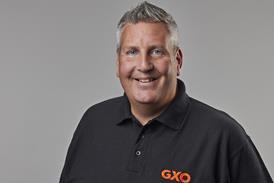
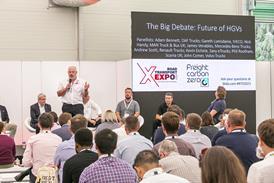
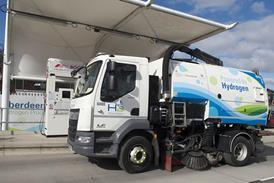


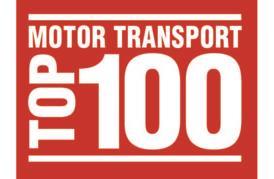


![Mercedes-Benz_eActros_600_(1)[1]](jpg/17820_mercedesbenz_eactros_600_11_978080.jpg)

